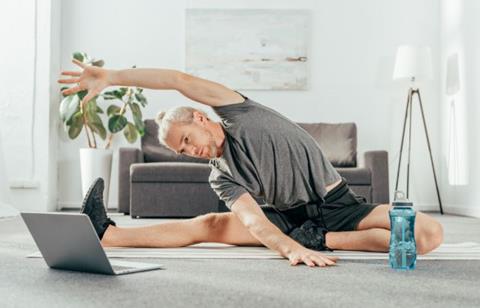
As the country adjusts to the second lockdown, businesses are once again seeing workforces dispersed by the return of remote working. Although no-one wants to be in lockdown again, the lessons we learned from the first lockdown see businesses better prepared for this one. The first long lockdown came as a shock and required employers to quickly find remote working solutions, not least of which was how to safeguard employee wellbeing at such a worrying and uncertain time.
“The learning from that period has certainly come into its own and we sense that companies are more confident navigating Lockdown 2.0,” says Luke Bullen, CEO UK/IE at leading corporate wellness company Gympass. “We are again working closely with our corporate clients to make sure their employees are getting the most out of the complete digital solution that we fast-tracked in the spring.”
Apart from the seismic shift in business practice and office culture, Covid-19 has impacted all areas of employee health and wellbeing - financially, physically and mentally.
“Companies with strong wellbeing strategies in place responded quickly and well to digital wellbeing options in the first lockdown,” says Luke. “However, we also saw those companies that didn’t have wellness options already in place, quickly move to incorporate digital wellbeing offerings. In essence, the pandemic was a defining moment in businesses looking afresh at wellbeing.”
The pandemic swiftly brought to employers’ attention the importance of providing a safe and supportive workplace environment – even if that workplace was people’s homes. To reach everyone everywhere, digital solutions were put front and centre and implemented quickly.
“At Gympass we saw a surge of demand during lockdown, with over 80 new companies onboarded, including companies as diverse as Bupa, Lidl and Admiral, in the UK. We also saw existing clients such as Thames Water and Santander, who already had great wellbeing strategies in place, quickly turn to our digital solutions.”
The Covid-19 pandemic exposed the correlation between ill-health and business results and brought to light the difficulty for employers in reaching their dispersed workforce.
“Taking employees away from their workplace also removed them from on-site or work-based physical and mental health activities,” says Luke. “Options such as on-site gyms, cycle-to-work schemes and healthy canteens became defunct overnight. In the same way that employees had to embrace digital working to stay effective and productive, they also had to embrace digital wellness options to stay healthy and well.”
The explosion of fitness and exercise apps was unprecedented, but many were more geared to the ‘fit and focused’ who already had a good level of fitness, the motivation and knowledge to workout at home. For those who needed more support and encouragement to get started, a broader range of options was needed. Gympass is primarily focused on getting people started on their fitness and wellness journey and seeks to help people stay well in more ways than looking after their fitness.
“There are plenty of excellent fitness apps available but in order to support employees holistically, employers need to signpost people to a wider range of options,” says Luke. “At Gympass, we offer the leading fitness apps and live classes from the likes of Barry’s and F45, fitness on-demand from Fiit and 1-to-1 personal training to help get people started. Importantly, we also partner with over 50 wellness apps - including Calm and Healing Clouds - to offer things like 1:1 therapy, mental health support and nutritional advice. We believe this balanced offering is what workforces need right now.”
Covid-19 has taught us anything, it’s that safeguarding employee health and wellbeing is of the utmost priority. Putting digital wellness solutions front and centre within companies will have far-reaching benefits for workforces now and long after lockdown eventually lifts.
https://hs.gympass.com/uk/corporate-gympass











